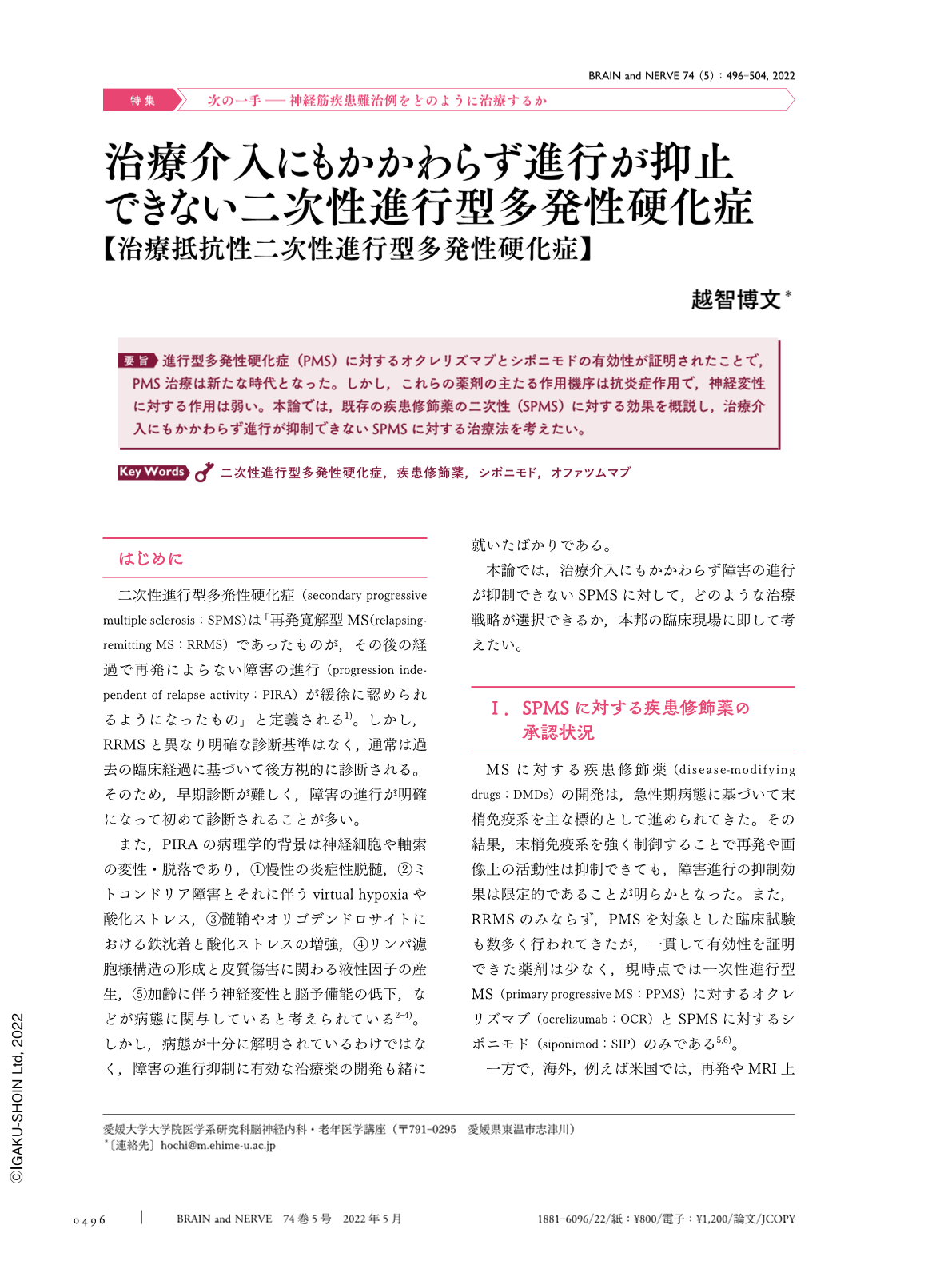Japanese
English
- 有料閲覧
- Abstract 文献概要
- 1ページ目 Look Inside
- 参考文献 Reference
進行型多発性硬化症(PMS)に対するオクレリズマブとシポニモドの有効性が証明されたことで,PMS治療は新たな時代となった。しかし,これらの薬剤の主たる作用機序は抗炎症作用で,神経変性に対する作用は弱い。本論では,既存の疾患修飾薬の二次性(SPMS)に対する効果を概説し,治療介入にもかかわらず進行が抑制できないSPMSに対する治療法を考えたい。
Abstract
New disease-modifying drugs (DMDs), such as ocrelizumab and Siponimod, have been proven to be efficacious for treating progressive multiple sclerosis (MS) and have marked a new era in the treatment of this disease. However, these drugs work on the inflammatory component of the disease, and their potential effect on the neurodegenerative aspect of MS is likely to be modest. Therefore, the treatment of progressive MS continues to be challenging in routine clinical practice. This review summarizes the efficacy of currently approved DMDs for secondary progressive MS and discusses the management of treatment-refractory secondary progressive MS.

Copyright © 2022, Igaku-Shoin Ltd. All rights reserved.


